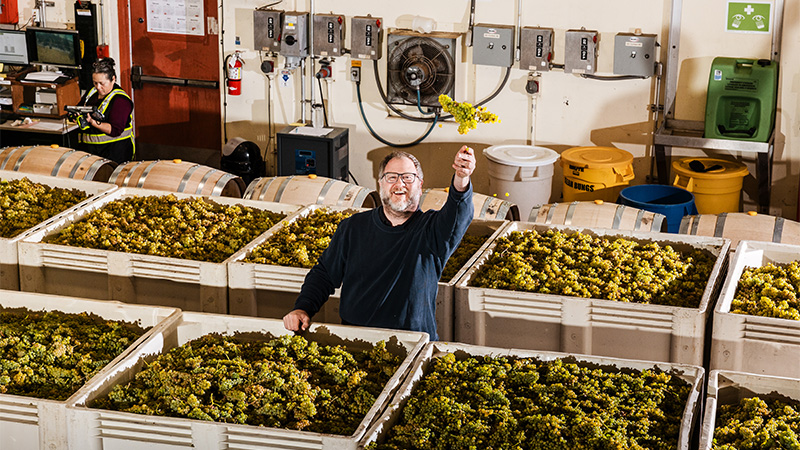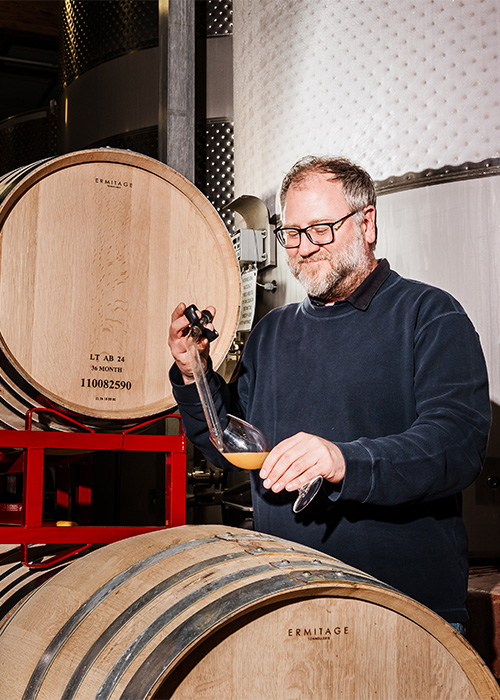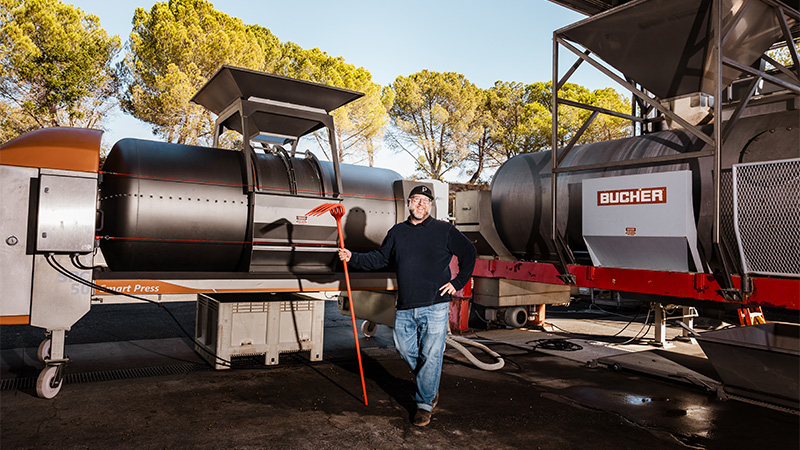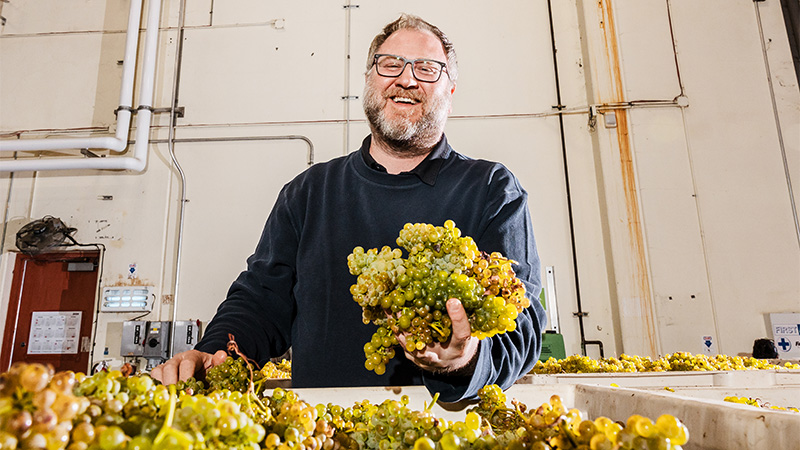This feature is part of our 2024 Next Wave Awards.
With its Mediterranean-inspired lineup of white wines, the Massican brand evokes the breezy, “La Dolce Vita” feeling of summer on the Italian coast. But despite its effortlessly cool appearance, the Napa Valley winery’s standout success is the result of years of tireless hard work and thoughtful planning by its founder, Dan Petroski.
Brooklyn-born Petroski started his career in New York working in sales and marketing at Time Inc. During his tenure at the company, he fell in love with every aspect of magazine publishing, but through exploring the city’s prominent dining scene, he also found himself drawn to the wine world. In 2005, Petroski was offered an intriguing new opportunity in the media realm. Faced with a career-changing decision, he instead opted to bail on the New York 9-5 altogether and pursue his interest in wine. So, naturally, he fled to Italy.

After an impactful year working for Sicily’s Valle dell’Acate winery and embracing coastal Italian life, Petroski moved back stateside as a newly minted member of the wine industry. He headed west for a harvest internship at DuMOL in 2006, and just a few months later landed the job as cellar master at Napa’s historic Larkmead Vineyards. Petroski took the opportunity to fully immerse himself in the business, working on the production side, taking shifts in the tasting room, and sitting in on finance and marketing meetings.
As an inherently ambitious and business-minded person (with an MBA from NYU Stern), Petroski started drawing up plans for a winery of his own not long after starting at Larkmead. Entrenched in Cabernet Sauvignon-centric Napa Valley, his original models were based on making classic Napa Cabs — i.e., buying highly sought-after grapes, securing expensive oak barrels, and allowing for an extended period to age the wines. The long-term, capital-intensive approach seemed untenable and near-impossible to execute.
But thinking back to his days of sipping crisp and refreshing white wines in Sicily, Petroski was inspired to flip the Napa winery business model on its head. “What does California not have? Mediterranean-style white wines,” he recalls thinking. At that moment, the idea of Massican began fermenting.

After switching the concept to white wine, the business plan started to make sense. By swapping out Cabernet Sauvignon for more obscure Italian varieties, the projected costs dropped dramatically. And by producing fresh, stainless steel-fermented white wines, the need for pricey barrels and long-term storage disappeared, with a promise of a much faster return on investment.
Petroski’s meticulous preparation finally started taking form, and in 2009 he produced the first vintage of Massican, with 400 cases of white wine, including a bright and herbaceous Sauvignon Blanc and an Italian-inspired blend of Ribolla Gialla, Tocai Friulano, and Chardonnay, named Annia after his mother.
The Sauvignon Blanc received some early luck in its quick rise to fame. While sampling the wine among friends in the valley, the beverage director of the French Laundry noticed its brilliance and offered to buy all 50 cases that Petroski had made that year. Massican’s Sauvignon Blanc earned a spot on the French Laundry’s by-the-glass list for 10 years in a row, which Petroski notes helped amplify the brand and expose a lot of people to the wines.

“The Sauvignon Blanc became popular, but the Annia became the most charming,” says Petroski. “It encapsulated everything I wanted from a Mediterranean white wine: seafoam, citrus blossom, bitter almond, lemon zest — and it was low-alcohol.”
Though the wines truly speak for themselves, Massican’s staying power can be attributed to Petroski’s commitment to building the brand. His extensive experience in media and publishing is apparent in the winery’s clear and consistent messaging; his ethos for Massican has always been to do one thing extraordinarily well. Since its first vintage, he has continued to produce vibrant, Mediterranean-style whites, never giving in to the pressure of trends or the need for rapid expansion. The wine label remained Petroski’s side-hustle for 12 years while he continued at Larkmead, steadily growing the project from 400, to 700, to 2,000 cases. In 2021, he finally took the plunge, taking on Massican full-time and further expanding to 10,000 cases.

While Petroski has enjoyed cultivating a dedicated following for his wines, he couldn’t deny the itch to have Massican reach more people. So when long-time friend and supporter Joe Gallo approached him with a partnership offer, he couldn’t refuse. E. & J. Gallo announced its acquisition of Massican in September 2023.
A year into the official partnership, Petroski is confident that Massican is poised to reshape the category of American white wine. Its popularity has been steadily climbing, and Gallo’s investment in Napa’s only exclusively white wine brand seemed to cement it for many: The time for white wine is now.
“White wine fits the energy and vibe of alcohol consumption right now,” Petroski says. “It’s lighter, brighter, fresher — and lighter on your wallet, too. Red wine has a nobility to it that we all respect, but white wine has a playfulness to it, and right now, in the time of Aperol Spritzes, we’re all about joy.”
Though Petroski will still continue to make the niche Italian blends like Annia, Massican will lean on wines like its Sauvignon Blanc and the newly introduced Pinot Grigio to help grow the brand. “The Pinot Grigio is an opportunity for us to show the world that we can make these wonderful Italian-style white wines in California,” Petroski says.
But Massican’s reach won’t stop there. The brand plans to build an intimate tasting room experience, and eventually, an Italian aperitivo-style bar concept. Slowly but surely, Petroski is bringing the Mediterranean fantasy of Massican that he has long curated to life — and is raising white wine’s cool factor with it.
